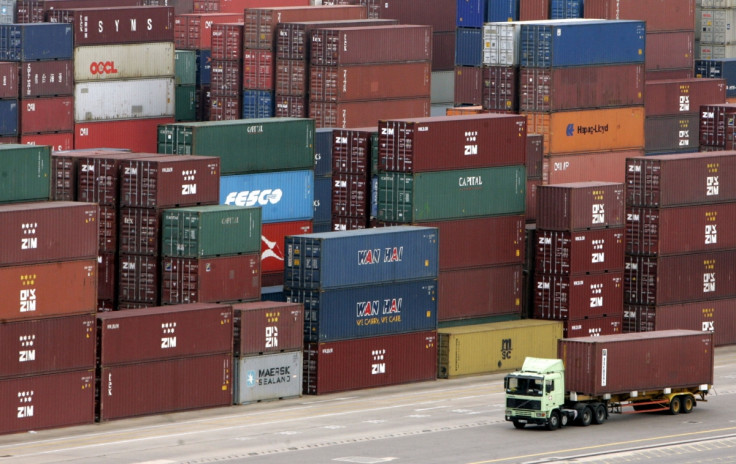TTIP: FedEx Chief Urges Faster Resolution Over Trade Deal to Boost UK Exports

The President of FedEx Express EMEA has called on negotiators from the EU and US to seal a free trade agreement as quickly as possible in order to boost exports from British businesses.
In an interview with IBTimes UK, David Binks said that many UK SMEs lack the support and expertise to enter export markets. Layers of bureaucracy and lack of regulatory harmony, he said, discourages them from selling their goods overseas.
"I think for instance the TTIP initiative is a great example. If we can be effective in negotiating the settlement between EU and US that will help. Remove some of the bureaucracy involved, simplify trade direction and regulations, harmonise codes, make export procedures more transparent. There are a lot of things there government can do," he said.
Talks over the Transatlantic Trade and Investment Partnership (TTIP) have been ongoing since 2013, with negotiating teams thought to be poles apart on some critical areas of the deal.
The deal would seek to reduce the remaining tariff barriers and duties that exist between the world's two largest trading blocs as well as slashing non-tariff barriers – for example standardising regulation.
"They [regulatory disparities] create confusion and uncertainty. They turn a lot of SMEs off. They know how to ship to different destinations, they understand the process and definitions. Then they try to import from the same place and find out they're dealing with a whole different set of procedures. That discourages SMEs from getting involved, they don't believe they have the resource or experience to deal with the complexity," Binks said.
The deal under discussion would be the largest free trade agreement in history. The EU and US already enjoy the largest bilateral trade relationship in the world, with each being the other's largest export partner.
A Lords report, undertaken by Sub-Committee C on External Affairs, estimates that TTIP could be worth €119bn (£94bn, $152bn) a year to the EU and €95bn a year to the US.
These figures have been widely contested, but business leaders and politicians have been keen to impress the importance of establishing a deal, saying that it will create jobs and help further stimulate growth in Britain's economy.
Binks said that while he's been impressed by the recovery shown by UK SMEs, there is a long way to go before they can be considered a true success story and called on policymakers to give all the support they can. He also encouraged British companies to look further afield than those markets which may seem more easily accessible.
"There are 20 million SMEs in Europe, they're the mainstay of the EU economy. When SMEs participate in international trade they're forced to be more creative, entrepreneurial and competitive. That has a knock on effect on the overall economy.
"In the EU only 25% of SMEs participate in export activity. Only 13% of that is outside Europe. There's a very large, untapped opportunity. SMEs lack resources, in house experience and they claim a lack of technical knowledge for competing in new markets.
"Most SMEs export to the US, Australia, New Zealand and Canada... markets we've competed in for some time. Further down are markets like Brazil, India and China – markets with great growth potential. There's a nervousness about UK SMEs getting involved. They're unsure about the regulatory environment and how to target customers in those markets."
Opponents of TTIP, however, claim it is a threat against democracy and that it will lead to the privatisation of the NHS. Many who are in broad favour of an agreement feel that some of its most contentious issues – such as the investor protection clause – should be redrawn or abandoned, if the benefit of the deal is not to be lost or overlooked.
The Labour MEP for North East England, Jude Kirton-Darling, told IBTimes UK: "If we got a good free trade agreement with the US there are real gains to be made, in terms of tariff reduction and tackling some of the non-tariff barriers. I can't for the life of me understand why that would be put under threat by investor-state dispute settlement or bad text that causes more ambiguity than anything else."
© Copyright IBTimes 2024. All rights reserved.






